Farinelli Blu-ray Movie
HomeFarinelli Blu-ray Movie 
Film Movement | 1994 | 111 min | Rated R | Apr 23, 2019Movie rating
6.8 | / 10 |
Blu-ray rating
| Users | 0.0 | |
| Reviewer | 3.5 | |
| Overall | 3.5 |
Overview
Farinelli (1994)
Farinelli, is the artistic name of Carlo Broschi, a young singer in Handel's time. He was castrated in his childhood in order to preserve his voice. During his life he becomes to be a very famous opera singer, managed by his mediocre brother (Riccardo).
Starring: Stefano Dionisi, Enrico Lo Verso, Elsa Zylberstein, Delphine Zentout, Jeroen KrabbéDirector: Gérard Corbiau
| Foreign | Uncertain |
| Music | Uncertain |
| Biography | Uncertain |
| Drama | Uncertain |
Specifications
Video
Video codec: MPEG-4 AVC
Video resolution: 1080p
Aspect ratio: 1.85:1
Original aspect ratio: 1.85:1
Audio
French: LPCM 2.0
Subtitles
English
Discs
Blu-ray Disc
Single disc (1 BD)
Playback
Region A, B (C untested)
Review
Rating summary
| Movie | 3.5 | |
| Video | 4.0 | |
| Audio | 4.0 | |
| Extras | 2.0 | |
| Overall | 3.5 |
Farinelli Blu-ray Movie Review
"Where's the rest of me?"
Reviewed by Jeffrey Kauffman February 23, 2020They say that in order to create “true” Art, the Artist must suffer. In that regard, there’s probably no Artist in any medium who suffered quite like Carlo Maria Michelangelo Nicola Broschi, the 18th century castrato who became famous under the stage name Farinelli. While there were of course many young boys who endured the same gruesome fate as Broschi did in order to preserve their pure quasi-soprano voices, Farinelli’s case was perhaps made more visceral because of his fame. Farinelli attempts to make hay out of the obvious torment Farinelli (Stefano Dionisi) experienced, but the film perhaps unavoidably has to rely on a rather large amount of speculative and some might allege fictionalized information, since documentation on the actual Farinelli is rather sparse. Farinelli is often sumptuous, colorful and is of course filled with ravishing music, but may wobble at least a bit in terms of how much actual “history” is provides.
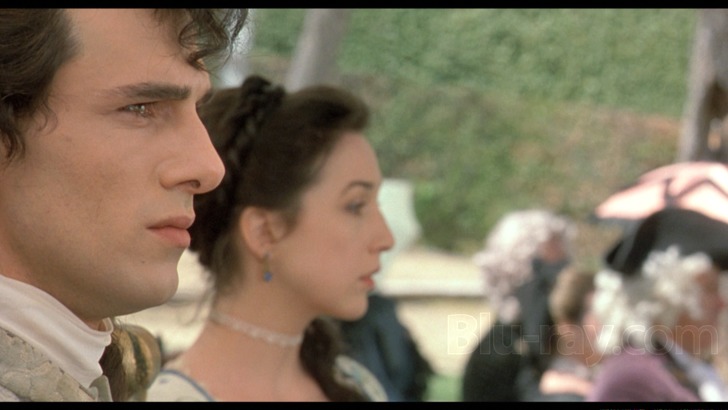
Farinelli deals with much of its content vis a vis flashbacks, and an early vignette documents a very young Carlo being warned by another recent castrato that Carlo’s beautiful singing will be the death of him (i.e., Carlo). The fact that this castrato then takes his own life seems to add a rather decided exclamation point to his “prophecy”. Carlo is shown to be terrified about the proposed “procedure”, but rather oddly, the film then elides that very incident, at least for a while, moving on to Carlo as a somewhat older man, already a fait accompli (so to speak) with a high, ravishing voice that he uses in another early vignette which is based on some historical (if questionable) anecdotal evidence that the real life Farinelli engaged in a “public duel” (musical variety) with a trumpet player, easily beating the brass virtuoso in both florid melismas and the ability to sustain tones for an untold amount of time.
In the synchronicity department, Sirius XM’s Symphony Hall is playing a bunch of Handel’s music as I’m writing this review, and Handel (Jeroen Krabbé) is not just a major character in Farinelli, in some ways he’s almost the “villain”, at least in the early going, something that may come as a surprise to aficionados of classical music. But this is perhaps just one of the more glaring examples of the liberties co-writer and director Gérard Corbiau takes with the basic “facts” of Farinelli’s life, injecting drama for probably understandable reasons, even if the historical record doesn’t totally support such machinations. In this case, the now grown Farinelli, who professionally has been a longstanding “team” with his composer brother Riccardo (Enrico Lo Verso), finds himself at odds with the venerable Handel when Handel doesn’t want Riccardo to tag along after Handel offers Farinelli a singing gig. Things go from bad to worse pretty quickly, with Handel making fun of Farinelli’s “condition”, which then results in Farinelli spitting on Handel. Suffice it to say, Handel and Farinelli part ways on less than friendly terms.
But the relationship between the Broschi brothers turns out to be the most important facet of the film in several regards. The connection between the two is shown courtesy of any number of flashbacks, tracing back to before Farinelli’s castration, but there are hints that that very castration may have been aided and abetted by Riccardo, who may have wanted “that voice” for his own selfish purposes. That underlying subtext provides a bit of tension as Farinelli’s career experiences a number of triumphs and at least occasional stumbles, but it’s again at least questionable as to whether things really happened the way they’re depicted. In a way, it makes another running subplot of the film — namely, that Farinelli “begins” a seduction of a woman, only to have Riccardo step in and “close the deal” — seem positively Freudian after it’s finally (more or less) revealed how Farinelli came to be castrated.
The "sibling rivalry" (if it can even be properly termed that way) at least finally opens the door for Handel to reenter the picture (figuratively and literally) in order to provide Farinelli with material supposedly worthy of his voice. Kind of strangely, the film then moves on to "present time" to document Farinelli and Alexandra Lerris (Elsa Zylberstein), who is more or less Farinelli's girlfriend, have withdrawn from public life. Alexandra, whose scheming led to the "reunion" between Handel and Farinelli, then begins working on a similar scheme involving Riccardo, which leads to a finale that is more than a bit Freudian, and is again unsupported by any actual historical documentation.
Perhaps because Farinelli's story is generally unknown (not the least due to the unavailability of datapoints about his life), the "fictionalization" this film employs is less objectionable than in other, arguably higher profile, "biopics" of more contemporary figures. If, then, one doesn't accept this film's depictions as "the truth and nothing but", the film does provide a really interesting peek into one of the more bizarre sidebars to the history of classical singing. Performances are generally quite winning, and the film's production design and soundtrack offerings are often quite glorious. I should probably point out that contemporary reaction to Farinelli may have been at least a bit more positive than my own personal take, as the film both won the Golden Globe and was nominated for an Oscar for Best Foreign Language Film the year of its release.
Farinelli Blu-ray Movie, Video Quality 
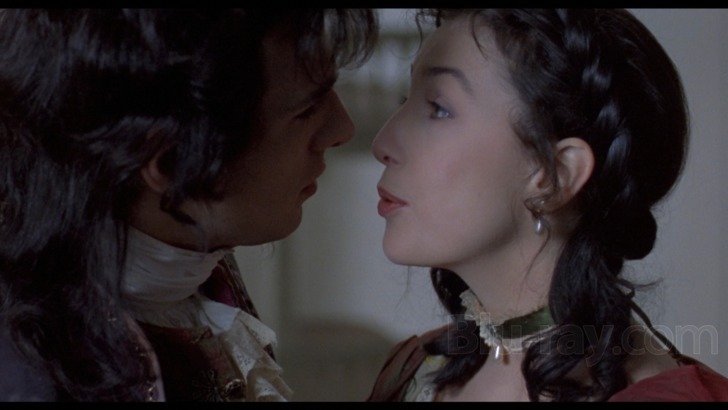
Farinelli is presented on Blu-ray courtesy of Film Movement Classics, an imprint of Film Movement, with an AVC encoded 1080p transfer in 1.85:1. As is sometimes the case with Film Movement releases, the insert booklet touts a "new 2K restoration" without providing any further technical data in terms of what that restoration entailed or even what element was utilized as a source. That said, while there are some variances on display here, this is often quite a sumptuous looking presentation, especially in terms of the palette, which, when it really pops, does so with some immediacy, especially in terms of some of the primaries, notably reds. That said, there are some differences in overall temperature and densities, as can perhaps be made out by some of the screenshots included in this review. Some scenes look just slightly dowdy, with a tendency toward browns, while others are quite a bit warmer looking, with a more generally natural appearance. Detail levels are quite good throughout, especially with regard to some of the really ornate costumes Farinelli wears (headpieces seemed to have been de rigeur for him, at least according to this film). One late scene featuring an eclipse has some really odd tinting, toning or some other grading choices applied that materially deplete fine detail levels for a moment or two. Grain resolves naturally throughout the presentation. Commendably, I noticed no major issues with regard to age related wear or tear or compression anomalies.
Farinelli Blu-ray Movie, Audio Quality 
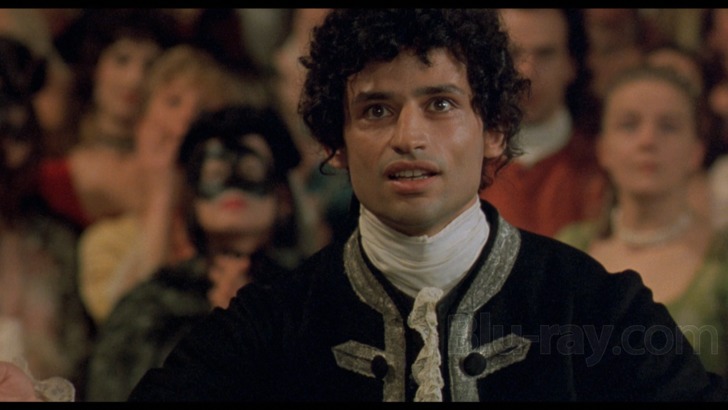
Farinelli features a full bodied LPCM 2.0 track that has bits in both French and Italian, with optional English subtitles. The gorgeous music is of course a major calling card here, and everything from potentially brittle harpsichords to sul ponticello string work sounds nicely burnished and clear, without any brashness, distortion or other issues. Not to state the obvious, but a real soprano was used to "duplicate" Farinelli's singing, and some of the lip synching is a bit wobbly. Dialogue is always rendered cleanly and clearly throughout this problem free track.
Farinelli Blu-ray Movie, Special Features and Extras 
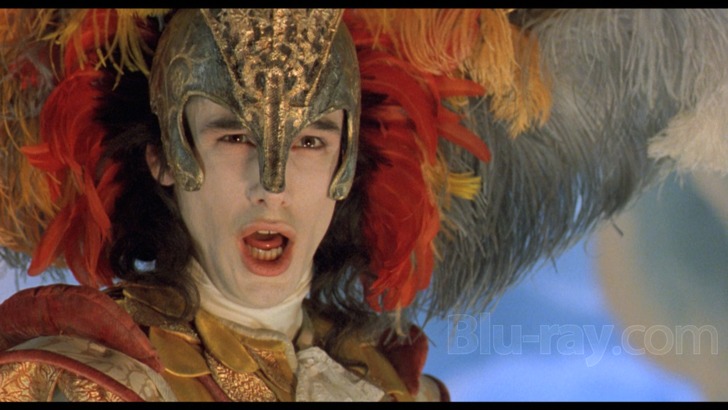
- Farinelli: Nostalgia for a Lost Voice (480i; 52:28) is a very interesting piece which seem to have been done for French television. This has some background info on the actual Farinelli, as well as copious behind the scenes footage of the film in production. This looked slightly anamorphically squeezed to me. In French with English subtitles.
- Farinelli: The Birth of a Voice (480i; 24:21) offers Gerard Corbiau discussing the genesis of the film.
- Farinelli Trailer (1080p; 1:57)
Farinelli Blu-ray Movie, Overall Score and Recommendation 
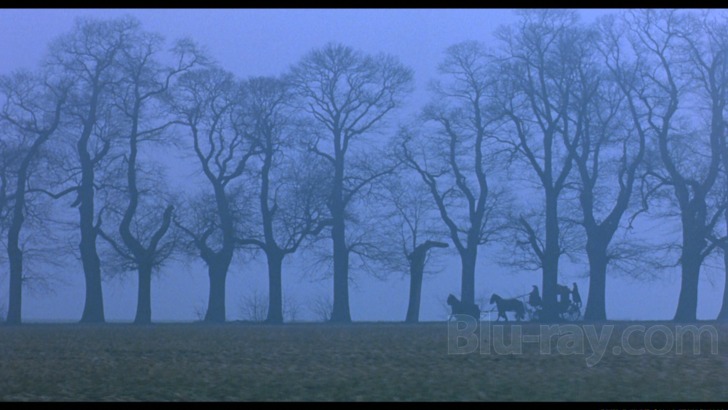
Farinelli may play fast and loose with the perceived "facts", but it's an often riveting film with an unusual subject matter, and it may appeal to those with an interest in this era of music in particular. The melodrama between the Broschi brothers may be more or less completely fictionalized, but it at least gives this version of the tale a rather trenchant psychological subtext. Technical merits are generally solid, and Farinelli comes Recommended.
Similar titles
Similar titles you might also like
(Still not reliable for this title)

The Color of Pomegranates
Նռան գույնը / Sayat Nova
1969

The Music Room
জলসাঘর / Jalsaghar
1958

Colonel Redl
Oberst Redl / Redl ezredes
1985

Napoléon
Napoléon vu par Abel Gance
1927

La Vie en Rose
La Môme / Warner Archive Collection
2007

The Sea Inside
2004

Bandit Queen
Limited Edition to 3000
1994

Gainsbourg: A Heroic Life
Gainsbourg: Vie héroïque
2010

Aquarius
2016

Zama
2017

Padre Padrone
Father and Master
1977

Oedipus Rex
1967

Sid & Nancy
1986

Martin Eden
2019

Tous les Matins du Monde
All the Mornings of the World
1991

Orchestra Rehearsal
Prova d'orchestra
1978

Il Divo
2008

The Promised Land
Bastarden
2023

Blinded by the Light
2019

The Wild Child
L'enfant Sauvage
1970
